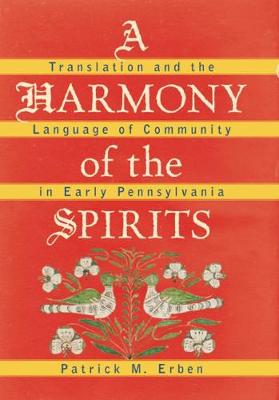In early Pennsylvania, translation served as a utopian tool creating harmony across linguistic, religious, and ethnic differences. Patrick Erben challenges the long-standing historical myth-first promulgated by Benjamin Franklin-that language diversity posed a threat to communal coherence. He deftly traces the pansophist and Neoplatonist philosophies of European reformers that informed the radical English and German Protestants who founded the ""holy experiment."" Their belief in hidden yet persistent links between human language and the word of God impelled their vision of a common spiritual idiom. Translation became the search for underlying correspondences between diverse human expressions of the divine and served as a model for reconciliation and inclusiveness.
Drawing on German and English archival sources, Erben examines iconic translations that engendered community in colonial Pennsylvania, including William Penn's translingual promotional literature, Francis Daniel Pastorius's multilingual poetics, Ephrata's ""angelic"" singing and transcendent calligraphy, the Moravians' polyglot missions, and the common language of suffering for peace among Quakers, Pietists, and Mennonites. By revealing a mystical quest for unity, Erben presents a compelling counter narrative to monolingualism and Enlightenment empiricism in eighteenth-century America.
- ISBN13 9780807835579
- Publish Date 10 June 2012
- Publish Status Out of Print
- Out of Print 30 April 2017
- Publish Country US
- Imprint The University of North Carolina Press
- Edition New edition
- Format Hardcover
- Pages 352
- Language English
